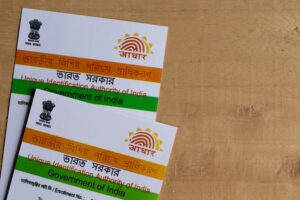
Validation of 1997 Himachal Pradesh Passenger Tax Legislation
In a significant ruling, the Supreme Court has upheld the validity of the 1997 Himachal Pradesh Passengers and Goods (Amendment and Validation) Act, which imposes taxes on transport vehicle owners providing free passenger services. This includes vehicles used by employers to transport their employees and families.
Background and Legal Challenge
The legal dispute stemmed from the Himachal Pradesh Passengers and Goods Taxation Act of 1955, which imposed taxes on passengers and goods transported by certain motor vehicles in the state. Thermal power companies, the appellants in this case, had previously challenged the applicability of the 1955 Act to their operations.
These companies had been providing free transportation to their employees and their children using company-owned buses, exclusively for their use and not open to the general public. The Assessing Authority had demanded passenger tax payments for several years, dating back to the 1980s.
High Court Ruling and Introduction of the 1997 Act
The Himachal Pradesh High Court had ruled in favor of the companies, noting that the 1955 Act did not explicitly cover the transport vehicles operated by these companies. In response, the state government introduced the 1997 Act to broaden the scope of vehicles subject to taxation when carrying passengers free of cost.
Supreme Court’s Decision
The Supreme Court determined that the 1997 Act had effectively addressed the High Court’s earlier judgment by amending various definitions related to passengers, businesses, and motor vehicles. This expansion of the law’s scope allowed taxation to cover vehicles engaged in carrying passengers and goods for any trade, commerce, manufacture, or other activities, whether or not they were for profit.
Tax Coverage and Exceptions
The Court clarified that the tax could be imposed on all passengers traveling for free, except for the driver, conductor, or employees fulfilling their duties related to the vehicle. This definition encompassed non-fare paying employees of the appellants and school-going children of these employees.
Dismissal of Motor Vehicle Tax Argument
The Court rejected the argument that the passenger tax was essentially a motor vehicle tax, emphasizing that it specifically targeted passengers and goods. The responsibility for paying this tax rested with the owners of the motor vehicles.
Implementation of Tax Liability
Using its powers under Article 142 of the Constitution, the Supreme Court decided to make the tax liability effective for the appellants starting from the current financial year. This leniency was granted considering that the appellants were public sector units involved in hydro-power and irrigation projects, offering transport facilities to their employees and children.
Legal Representation
Advocate SB Upadhyay represented NHPC (appellant), while Advocate Yashraj Singh Deora appeared for the Bhakra Beas Management Board (appellant). Advocate General Anup Kumar Rattan represented the State of Himachal Pradesh in this case.
![]()




